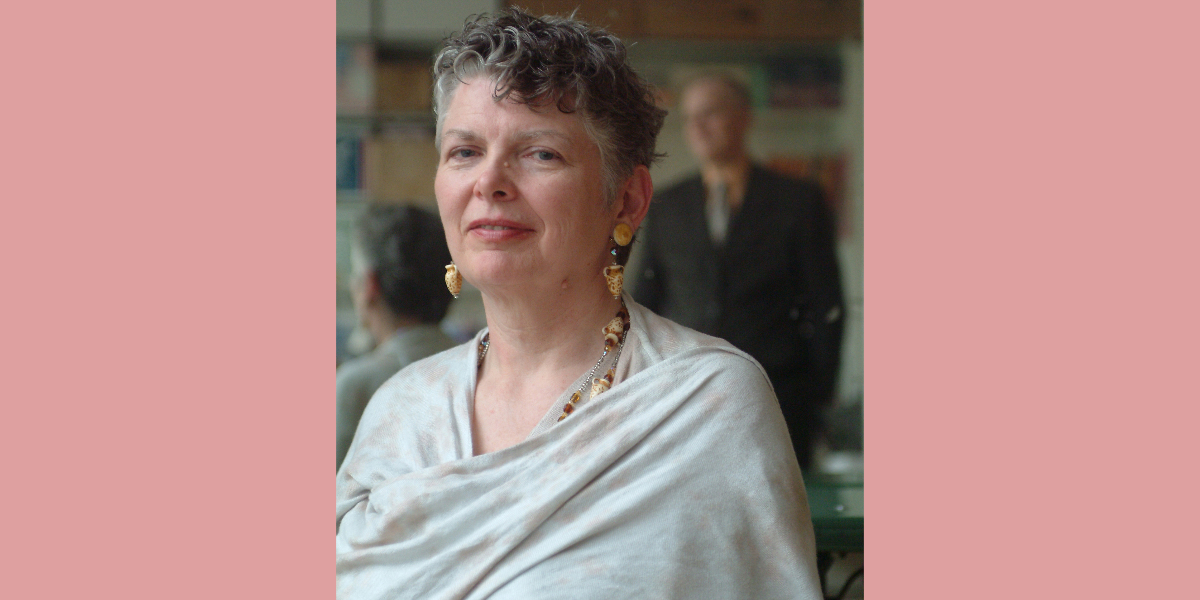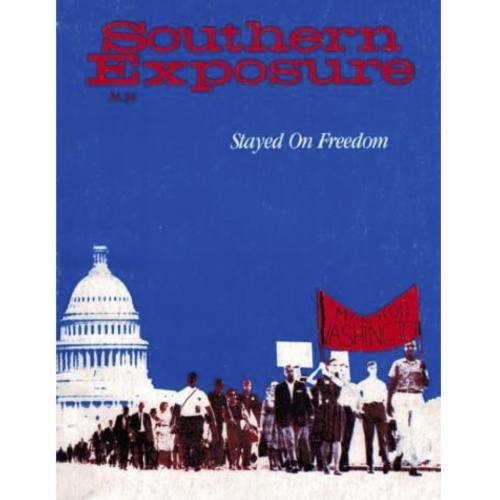From the Archives: Minnie Bruce Pratt's 'Southern Gothic'

Minnie Bruce Pratt in 2003 (Photograph by Marilyn Humphries)
Minnie Bruce Pratt, the lesbian and feminist poet, writer, and activist, died on July 2 at age 76. Born in Alabama during segregation, she attended the University of Alabama and received her Ph.D. in English Literature from the University of North Carolina at Chapel Hill. While in North Carolina, she began organizing as part of the women’s liberation movement in Fayetteville, North Carolina, near the Fort Bragg base.
In 1975, Pratt came out as a lesbian and, as a result, lost custody of her two sons — experiences she wrote about in her award-winning poetry collection, “Crimes Against Nature,” published in 1989. She was part of the women’s liberation and anti-racist movements in the South, and, for five years in the 1970s and 1980s, was part of the editorial collective of the Southern lesbian-feminist journal Feminary. She later lived in Washington, D.C., where she co-founded the lesbian activist organization LIPS.
Pratt published seven other books of poetry and several collections of essays, including “Rebellion: Essays 1980-1991,” and “S/He,” about gender fluidity and boundary-crossing. Her longtime partner, from 1992 until their death in 2014, was trans writer and activist Leslie Feinberg.
Pratt’s 1980 poem “Southern Gothic,” republished below, appeared in “Festival,” the Summer 1981 issue of Southern Exposure that celebrated Southern literature. The poem is dedicated to the Southern authors Carson McCullers and Bertha Harris, women writers of an earlier generation in the South whose work and lives Pratt found solidarity in. “I know / at least two women before me in this town,” she writes, “/ have made an art of being strange.”
You can read a longer history of lesbian writing in the South by Mab Segrest, also published in “Festival,” here.
For Carson McCullers and Bertha Harris of Fayetteville, NC
By Minnie Bruce Pratt
September 11, 1980
In my room are six windows
and a mirror big enough to walk through.
Then I see myself sit on a yellow bed and beyond
one window open into the green cavern of a tree.
In this mirror I have watched my face twist
with sorrow dangerous as a nest of coral snakes,
my body writhe with a lover, our arms,
our thighs silver in the moonlight, like eels
hurrying over a dewy meadow to the sea.
All the while the tree in the mirror trembled
with veins of ice or knotted itself into
fists of white flowers. Now berries are scattered
like red nipples over the yellowing skin of its leaves.
It is time for me to stand and look with a practiced
eye
through the old glass that wavers behind me.
In this window I see the customary street, the lines
and fences that have caught the young woman
next door.
She lives like a rose-of-sharon tree set in an iron
pot.
I fear like her to be contained, but I know
at least two women before me in this town
have made an art of being strange, wandered
like wolves in its streets hunting for the wildness
hung between the starched clothes stiff on the line.
Like them I look with my eyes’ mirrors to see
the dwarfed housewife of forty years in the dawn
calling her cats to her like a gypsy queen,
the ponderous woman with elegant hands in
the sun
who roots up the last rose from her lawn
to make a jungle with fern and banana trees,
at the night end of the street the ghost of two girls
whose mouths kiss and separate and join again.
I see myself stand on the steps, the bearded lady
my hairy legs ready to run wild over the road,
living like wisteria, gnarled and twisted,
trailing with a lover down the steps
like two purple meteors of wisteria bloom
while to themselves neighbors murmur
how peculiar, how queer.
Tags
Southern Exposure
Southern Exposure is a journal that was produced by the Institute for Southern Studies, publisher of Facing South, from 1973 until 2011. It covered a broad range of political and cultural issues in the region, with a special emphasis on investigative journalism and oral history.
